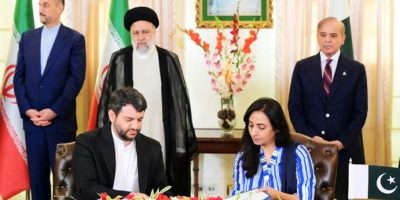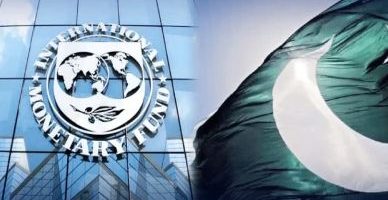Experts say Indian govt committing legal terrorism against Muslim population

ISLAMABAD, SEPT 6 (DNA) -: Experts in a consultative meeting on the recent regional and international developments in the wake of Indian aggression in Occupied Kashmir after abrogation of Article 370 and 35(A) of its constitution discussed at length the possible future strategic scenario and advised the policy circles to consider them to plan an appropriate response.
The session held at Institute of Policy Studies (IPS) was presided over by Maj Gen (r) Sardar Muhammad Anwar Khan, former president Azad Jammu & Kashmir (AJK).
The analysts participating in the consultative meeting belonged to diverse fields including politics, defense, media, think tanks and academia.
They included Khalid Rahman, Executive President, IPS; Brigadier (r) Said Nazir; Lt General (r) Faiz Jilani; Ambassador (r) Ishtiaq Hussain Andarabi; Ambassador (r) Abrar Hussain; Farzana Yaqoob, former AJK minister; Sheikh Tajammul-ul-Islam, head of Kashmir Media Service; Dr. Khursheed Munshi, medical practitioner and relief worker in AJK; Ghulam Muhammad Safi, Hurriyat leader and representative of Syed Ali Gilani in Pakistan; Dr Shahzad Iqbal Sham, IPS Fellow; Syed Muhammad Ali, Defence Analyst; and Dr Aisha Aijaz, blogger and social media activist.
Highlighting the motivations of the Indian actions regarding Kashmir, the analysts emphasized that the ruling party of India, BJP, had clearly expressed its designs to abrogate Articles 370 and 35 (A) from the Indian constitution in their election manifesto.
Therefore, the Indian actions should not have been taken as a surprising move. The RSS-backed BJP Government is set to conduct constitutional and legal terrorism against the Muslim population of India and its next target are the Muslims of Assam.
Moreover, keeping in view the current reaction of the international powers, it seems obvious that India took the decision of abrogating 370 and 35(A) after taking global powers in confidence. India expected Kashmir to go in a receptive calm after these actions. However, the reaction of the Kashmiri population and the unprecedented reaction of the international media and civil society was highly unexpected for India.
The speakers also noted that India is unlikely to reverse its constitutional actions regarding Kashmir.
However, in order to avoid further embarrassment on international front, India may propose to consider restoring the statehood of Kashmir if Pakistan stops interfering in IoK. However, such a proposal would only be used a cover to shift the blame on Pakistan.
The speakers also noted that Article 35 (A) had far reaching implications than Article 370 as the Indian constitution was already being applied as the de-facto constitution of the Occupied Kashmir. However, by abrogating 35(A), India is aspiring to bring demographic changes in the Occupied Kashmir. For this purpose, India is likely to employ the strategy used by Israel in the West bank and Gaza strip. India may aim to change the demography through resettlements of non-indigenous people, and genocide in the Occupied Kashmir. India may also push the population of the valley towards Pakistan by launching a limited military action against Pakistani forces.
Moreover, India is also planning to bring huge public and private investors in Kashmir under the pretext of economic development. Through these investors foreign powers may establish their foothold in the strategic area of Ladakh.
The speakers also stressed that unlike popular perception, Ladakh is not a Buddhist region. The 2012 census conducted by the India itself notes that the Buddhist population in the region is 40 percent, while the Muslim population is 46 percent.
The speakers also highlighted that since Kashmir had a special status in the Indian constitution, India was not in the position of settling its border disputes with China in Kashmir. However, now India has removed its constitutional obstacles and could initiate an arrangement with China. Therefore, it is important to ponder upon the implications if China settles its disputes with India bilaterally.
The speakers highlighted that the next agenda on the election manifesto of BJP was to regain the territories of Azad Jammu and Kashmir. India is currently keeping more than half of its military forces in Kashmir.
The surge of Indian troops is likely to increase since India currently faces negligible challenges on any other fronts. The speakers urged the strategic community of Pakistan to consider these possible future scenarios regarding Kashmir while planning its response. DNA
Related News

Iran, Pakistan determined to fight terror, says Raisi in joint presser with Shehbaz
ISLAMABAD: Iranian President Seyyed Ebrahim Raisi Monday said both Iran and Pakistan are determined toRead More

IMF’s $3 bln package encouraging but have to implement tax reforms in true spirit: Dr Aftab
KARACHI, APR 22 (DNA): Dean of Indus University, Dr Aftab Madni has said that itRead More


Comments are Closed